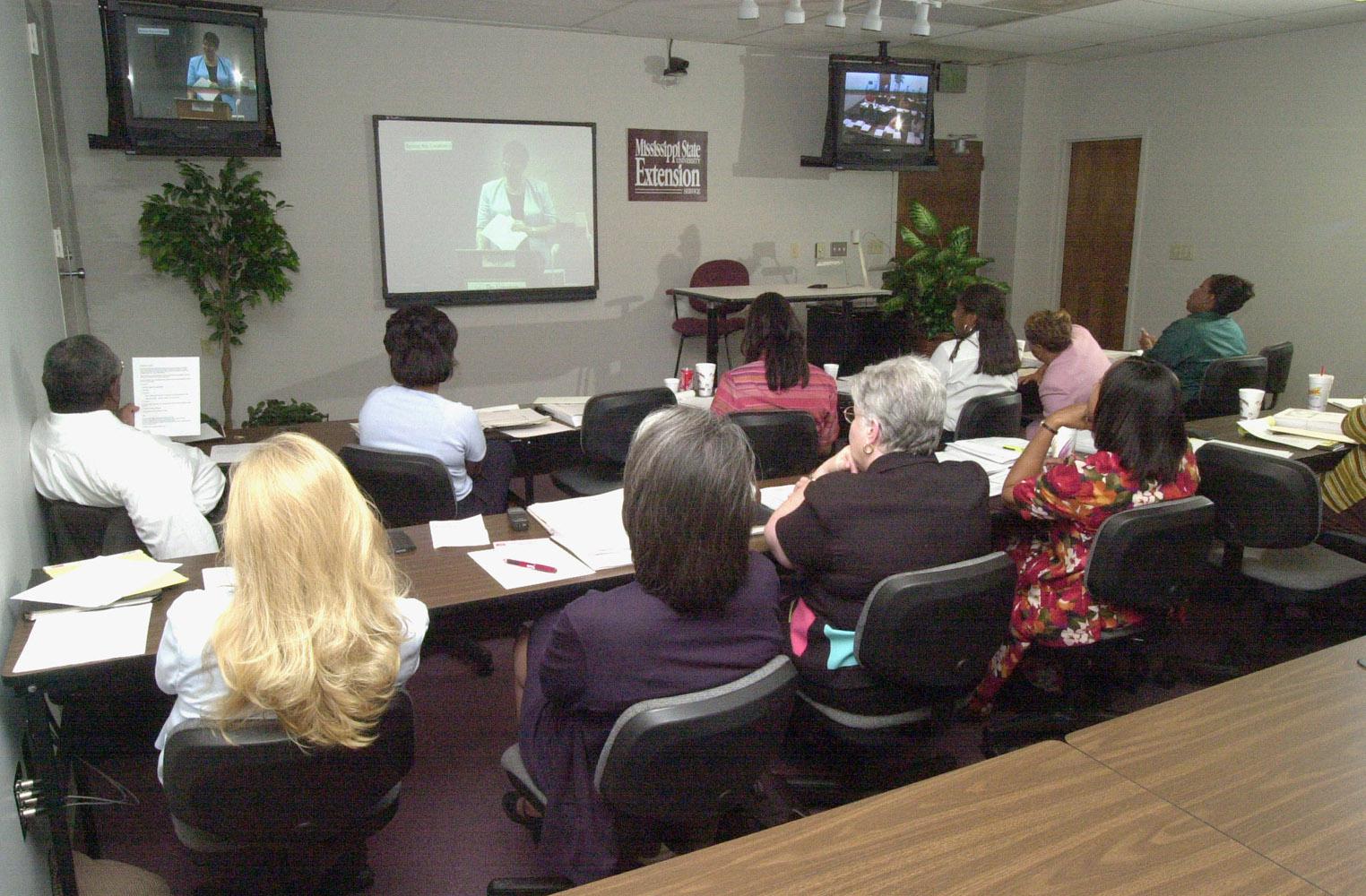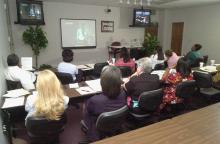Information Possibly Outdated
The information presented on this page was originally released on January 7, 2002. It may not be outdated, but please search our site for more current information. If you plan to quote or reference this information in a publication, please check with the Extension specialist or author before proceeding.
Video technologies answer education, business dilemmas
MISSISSIPPI STATE -- Video conferences for distance education and for business meetings are providing options for meeting the travel challenges faced during these days of tighter budgets and increased concerns about flying.
Dan Brook, head of Mississippi State University's Computer Applications, said time has become a precious as money in today's society. Most people consider the time for travel as a part of the price for attending classes or meetings away from their immediate area. Video conferences provide face-to-face discussion immediately without extra hours of travel.
"Every time I get in a car or go to the airport to go to a meeting, I question whether this is the best use of my time," Brook said. "There is more to calculate than mileage or an airline ticket; there's your professional and personal time."
One-way satellite conferencing is giving way to two-way, interactive video, and neither are new technologies. Video conferences are definitely becoming more popular as budgets tighten. Brook said initial equipment can cost from $500 for a personal desktop video conference camera to $65,000 for a fully equipped classroom.
"The return on the investment depends on how much the equipment is used. Often, it can pay for itself very quickly," Brook said. "In addition to the equipment, users need adequate bandwidth -- something well beyond dial-up connections."
Brook said there has been a significant increase in demand for video conferencing equipment and facilities since the Sept. 11 terrorist attacks raised concerns about air travel.
"Many people are just now realizing this technology is available and effective both in corporate and educational situations," he said.
Brook oversees video conferencing equipment needs for the MSU Extension Service, which has four fully equipped classrooms with multiple cameras and presentation equipment. The Extension Service can connect to 150 classrooms in the state and many more worldwide.
Susan Seal, Extension distance learning coordinator, said the technologies benefit participants and workshop leaders in win-win opportunities.
"Video conferences reduce the travel necessary for both the presenters and the participants. We can provide higher quality programs by putting all our travel resources into getting the top specialists to one location at one time and then letting the technology take the information to many locations across the state or beyond," Seal said. "Participants enjoy the ability to hear questions and comments from people at other sites. The potential for more presenters and participants combines to improve the overall educational quality."
In addition to video conferencing, Seal said on-line courses are growing in popularity as a form of distance education. Some forms of on-line courses have been available in higher education for a decade or so, but they are just reaching the general public.
In 2002, Seal said Extension will offer on-line courses for two key issues in Mississippi. For years, Extension specialists have provided non-credit courses for forest landowners and in-service training for child-care workers.
"We felt like both of these would be ideal for on-line training. The time required for child-care workers to attend the required in-service training can be difficult to schedule. Participants can work through the material at their own pace and at a time convenient to them," Seal said. "The forestry material will appeal to landowners across the Southeast."
Seal said people want training provided in more convenient methods with special attention given to quality. As technologies advance, more opportunities for distance education will follow.
For more information on distance education or on the MSU Extension Service's offerings, visit the distance education link at www.msucares.com. The website includes the upcoming interactive video conference schedule.





